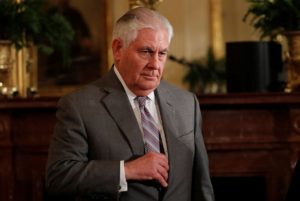President Gerald R. Ford thought he was appointing a conservative jurist to the U.S. Supreme Court in 1975 when nominated John Paul Stevens.
Wrong, Mr. President. The justice turned out to be a liberal icon on the court. The retired justice has ignited a wildfire. He writes in a New York Times essay that it’s time to — gulp! — repeal the Second Amendment.
Justice Stevens is 97 years of age but he still has a razor-sharp mind. He’s a learned and brilliant man.
That all said, I happen to disagree with him on the need to repeal the amendment that says the “right to keep and bear Arms shall not be infringed.”
Stevens writes, in part: Concern that a national standing army might pose a threat to the security of the separate states led to the adoption of that amendment, which provides that “a well regulated militia, being necessary to the security of a free state, the right of the people to keep and bear arms, shall not be infringed.” Today that concern is a relic of the 18th century.
Read the entire essay here.
I don’t intend to suggest I can match Justice Stevens’s intellectual wattage. I just want to offer the view that the Second Amendment contains no language that I can identify that says it must remain sacrosanct.
With the March For Our Lives emboldening literally millions of young Americans to seek legislative remedies to the spasm of gun violence, I am going to cling tightly to the view that those remedies exist somewhere in the legislative sausage grinder. And those remedies can be enacted without repealing the Second Amendment.
I know what the amendment says and nowhere does it ban any reasonable controls on the purchase, sale or the possession of firearms. Gun-rights proponents keep insisting that any legislation that seeks to impose tighter controls on gun purchases launches us down some mysterious “slippery slope.” They fill Americans with the fear that the government is coming for their guns; they’ll be disarmed and made vulnerable to governmental overreach.
That is the worst form of demagoguery imaginable.
Surely there can be some way to allow “law-abiding Americans” to purchase firearms while keeping these weapons out of the hands of lunatics. This can be done under the guise of a Second Amendment guarantee that Americans can “keep and bear Arms.”






